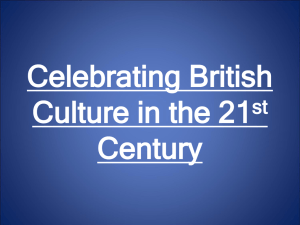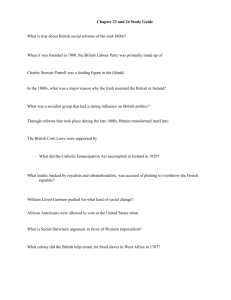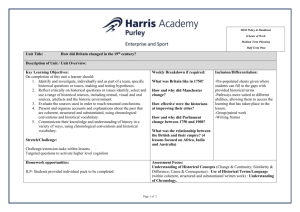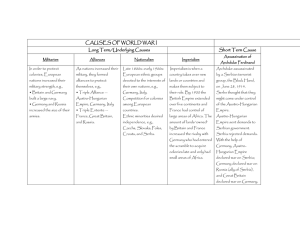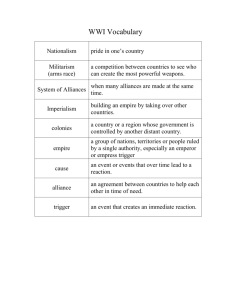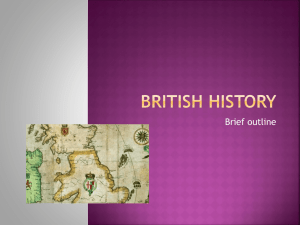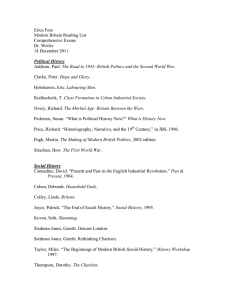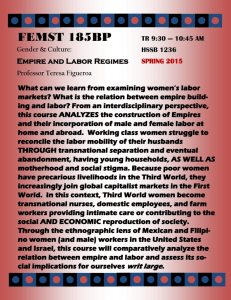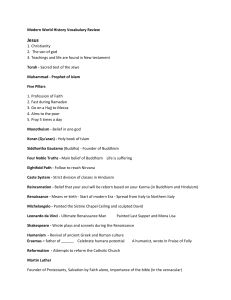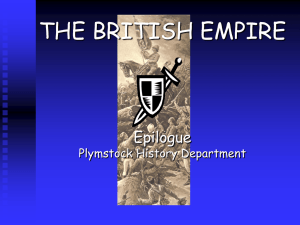Chapter 13
advertisement
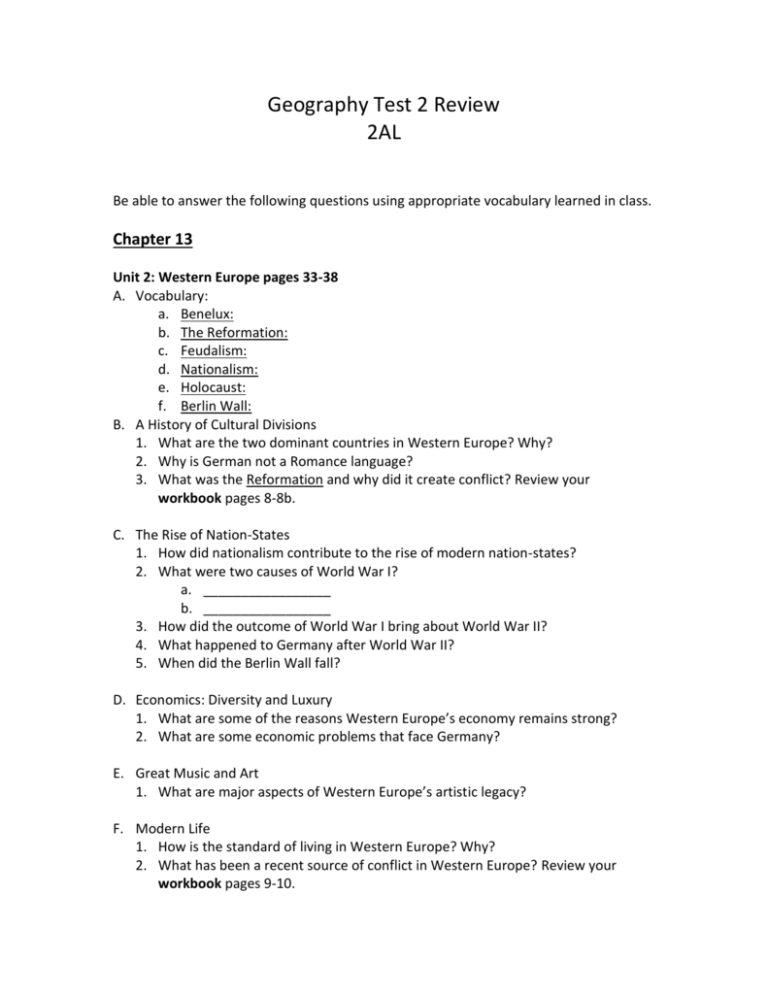
Geography Test 2 Review 2AL Be able to answer the following questions using appropriate vocabulary learned in class. Chapter 13 Unit 2: Western Europe pages 33-38 A. Vocabulary: a. Benelux: b. The Reformation: c. Feudalism: d. Nationalism: e. Holocaust: f. Berlin Wall: B. A History of Cultural Divisions 1. What are the two dominant countries in Western Europe? Why? 2. Why is German not a Romance language? 3. What was the Reformation and why did it create conflict? Review your workbook pages 8-8b. C. The Rise of Nation-States 1. How did nationalism contribute to the rise of modern nation-states? 2. What were two causes of World War I? a. _________________ b. _________________ 3. How did the outcome of World War I bring about World War II? 4. What happened to Germany after World War II? 5. When did the Berlin Wall fall? D. Economics: Diversity and Luxury 1. What are some of the reasons Western Europe’s economy remains strong? 2. What are some economic problems that face Germany? E. Great Music and Art 1. What are major aspects of Western Europe’s artistic legacy? F. Modern Life 1. How is the standard of living in Western Europe? Why? 2. What has been a recent source of conflict in Western Europe? Review your workbook pages 9-10. G. Main Ideas 1. How do language and religion reflect the cultural division in Western Europe? 2. Which 3 Western European leaders tried to unify Europe through conquest? 3. In what way does Western Europe have a diverse economy? Unit 3: Northern Europe pages 39-44 A. Vocabulary: a. Nordic Countries: b. Parliament: c. Silicon Glen: d. Euro: B. A History of Seafaring Conquerors 1. What does “seafaring” mean? 2. Who were the Vikings? What did they do? 3. In _______ (date) William the Conqueror conquered __________. He was from _________ and this is why the English language has many ________ words. 4. After this date, did any outside power ever successfully invade Britain? 5. Why did people say “The sun never sets on the British Empire?” 6. What was an important consequence of the British Empire spreading all over the world? Review workbook pages 11-12. C. Moving into the Modern Age 1. What is the Magna Carta and why was it important? 2. Where did the Industrial Revolution Start? Why did the growth of industry motivate Britain’s empire building? 3. What happened to many former colonies since World War II? 4. In ____ (date) Britain divided Ireland into two states: a. _____________ gained independence b. _____________ remained part of the UK. It had a _________ majority. D. Economics: Diversity and Change 1. What role do natural resources play in Europe’s economy? 2. Where is Silicon Glen and why is it important economically? 3. Name a northern European country that has chosen not to join the European Union. Why? E. Cultural Similarities and Modern Art 1. Why is London such a multi-cultural city today? 2. What is the most prominent language in Northern Europe? And what is the most prominent religion? 3. In what ways have Great Britain and Ireland influenced world literature? F. Life in Northern Europe 1. What are some characteristics of governments in Northern Europe? 2. What are some popular sports in Northern Europe? How does the sport of cricket demonstrate the spread of British customs throughout the world? EXTRA CREDIT: Discuss the video about the British Empire that we watched in class. What are some lasting effects of colonialism? Think about economic, cultural, political, religious etc.
